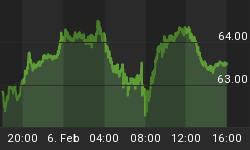Where and How will the sub-prime/ARM problems hurt other parts of the economy?
Who will get hurt first?
You are probably tired of hearing about the sub-prime problem by now. There is another aspect about sub-prime problems that the no one is talking about that has underlying implications regarding delinquent debts problems.
Larry Jeddoloh, of TIS Group, made a good observation about consumers caught in debt problems relative to their mortgage payments and losing their homes. He said that, " ... when a consumer is in deep debt, they always try to save their homes first. They will let their credit card payments go, stop payments on their car, and default on loans from a relative before they lose their house." What about those who are not in deep debt yet?
I thought about what Larry said this weekend ... and the problem is larger in another aspect. There are 700,000 ARM holders that will see their payments double this year. Let's assume for a moment, that all 700,000 three-year ARM mortgagees are paying all their debt, and credit cards on time. What happens when their $1,200 mortgage goes up to $2,400? They won't be able to make their credit card and auto payments the next month, and then ... after this problem, they will go into deep debt. This problem doesn't just affect the current consumers that are in default ... it will affect the majority of ARM mortgagees in the coming months and that will put a dent on banking financials and a dent on consumer spending.
We are now in April, when the first group of 3 year arms will have the monthly mortgage due amount go up about 100%. Even if these people refinance now, their payments will go up 60%. That means that in the coming months, these people will stop making payments on their credit cards and vehicles before they go into a mortgage default. So the sub-prime home default payment problem will only show up later ... after it shows up in credit card/auto delinquencies first. This also means that we should expect an increase in used car inventories, as well as in increase in homes for sale.
This means that MasterCard, and other credit companies will face the problem of writing off debts before the mortgage companies foreclose on homes. While this problem builds up, it will be nearly invisible on banking financials. Why? Because the new bankruptcy law allows very few consumers to go bankrupt. Because of this, banks will be keeping these bad debts on their books as assets because consumers are required to pay off the credit over their lifetimes. As the problem gets worse, much of the related data won't show the increasing problem on an asset basis. But, it will show up as a decreased revenue problem for these lenders.
A canary in the mine?
Summer is coming ... that time when consumers take most of their vacations. It we have many consumers facing monthly financial problems, then you would expect that they won't be able to afford an expensive vacation any time soon. So, this morning we will look at the Dow Jones Travel and Leisure Index.
Its chart is below and show's what is happening to that sector.
If you just look at the price chart, it looks like travel and leisure is holding up pretty well, and that this will be a good year for the vacation industry. But, that is not the case. As you can see on the top graph, the Relative Strength of the sector is breaking down, and the MACD is showing a problem in the second graph.
All the vacation industry needs now, is $4.00 to $5.00 gasoline prices like some are predicting, and the vacation industry is going to have sizeable correction. Debt defaults will show up in credit card delinquencies, and ... it will show up in fewer people taking vacations this year.

Please Note: We do not issue Buy or Sell timing recommendations on these Free daily update pages. I hope you understand, that in fairness, our Buy/Sell recommendations and advanced market Models are only available to our paid subscribers on a password required basis. Membership information















